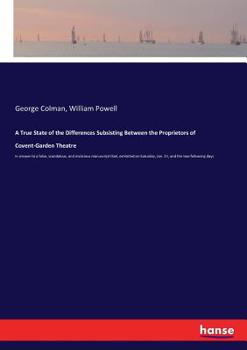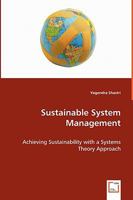A true state of the differences subsisting between the proprietors of Covent-Garden Theatre; in answer to a false, scandalous, and malicious ... days; and to a printed narrative, signed b
Select Format
Select Condition 
Book Overview
A True State of the Differences Subsisting Between the Proprietors of Covent-Garden Theatre - in answer to a false, scandalous, and malicious manuscript libel, exhibited on Saturday, Jan. 23, and the two following days is an unchanged, high-quality reprint of the original edition of 1768. Hansebooks is editor of the literature on different topic areas such as research and science, travel and expeditions, cooking and nutrition, medicine, and other genres. As a publisher we focus on the preservation of historical literature. Many works of historical writers and scientists are available today as antiques only. Hansebooks newly publishes these books and contributes to the preservation of literature which has become rare and historical knowledge for the future.
Format:Paperback
Language:English
ISBN:3337409911
ISBN13:9783337409913
Release Date:December 2017
Publisher:Hansebooks
Length:222 Pages
Weight:0.65 lbs.
Dimensions:0.5" x 5.8" x 8.3"
Related Subjects
Loss Love Memory Transcendence Wisdom Nature's Beauty Art Arts, Music & Photography PoetryMore by Yogendra Shastri
Customer Reviews
6 customer ratings | 4 reviews
There are currently no reviews. Be the first to review this work.






















